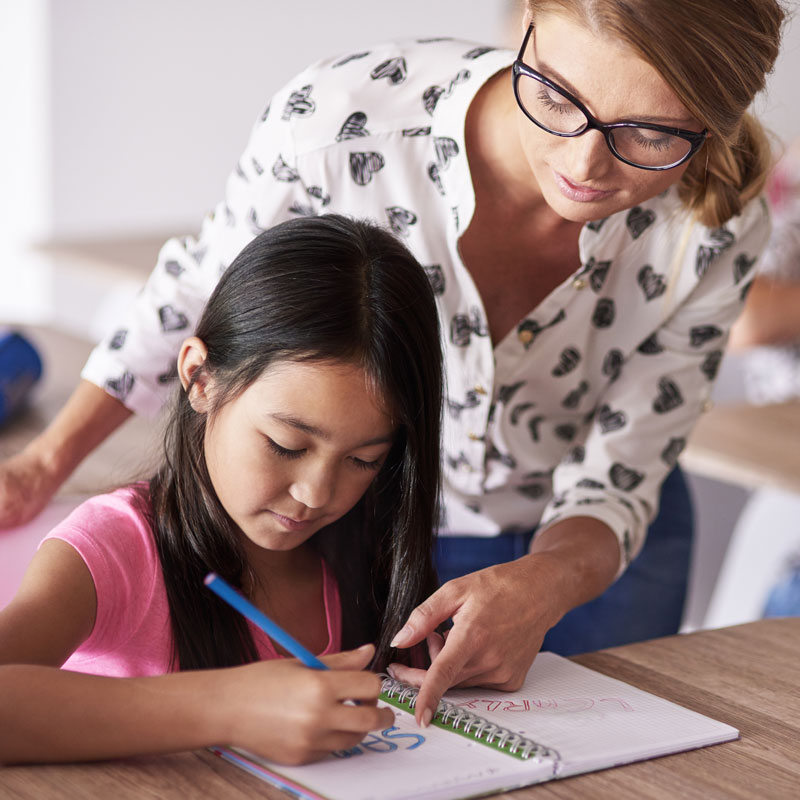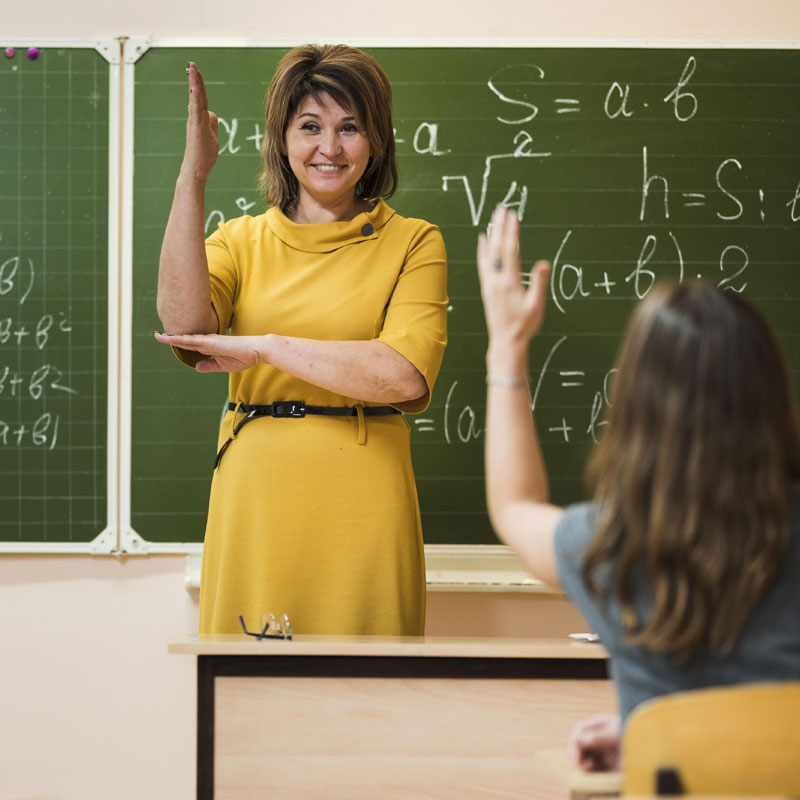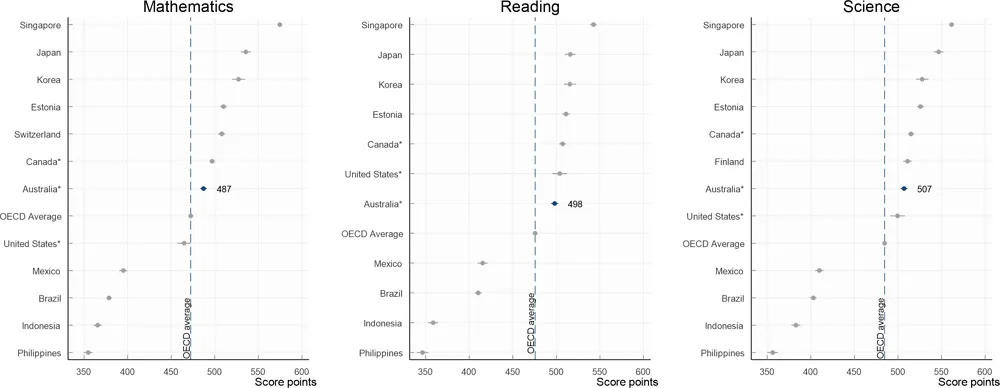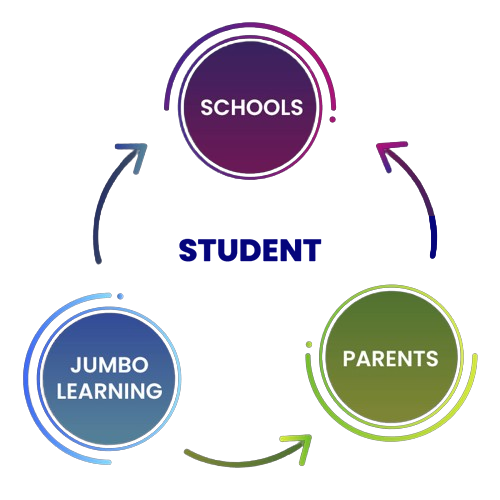
A standard reading teacher in Adelaide focuses on teaching reading and advancing a child’s ability to read. An educational therapist goes beyond skills teaching to work with the individual to help them understand their learning difficulties and identify the processing skills that are underdeveloped and keeping them from learning adequately. By building a person’s awareness of their learning style, a teacher can empower that individual to implement strategies and techniques which will aid them in the learning process. At Jumbo Learning, our goal is to guide each student so he or she can undertake organised independent learning.

At Jumbo Learning, our Educational Therapist or Student Coach, Mrs. Priscilla Zephaniah is one of Adelaide’s most efficient and proven to be effective Master Teacher and Educational Therapist for children in distress or for children who simply want to do better (in a short span of time)! Our work is known to enable a child to reach their zenith and then to maintain it without burnouts.
Having taught in educational systems and countries like Australia, Singapore, Finland and Japan, Priscilla Zephaniah has meshed all educational perspectives and pedagogical approaches to come up with a formula that has helped many children in the Australian education system. Having appreciated that no one country’s system is perfect, at Jumbo Learning we have forged the path forward with minimal homework and maximum optimization of the child’s learning outcomes according to the South Australian Curriculum. This and with Therapy embedded in each session is how we deliver our results that is the key difference!

- Average 2022 results were about the same as in 2018 in mathematics, reading and science.
- While the most recent trend is stable, at least since 2015, over the longer term performance declined in all three subjects. In mathematics and reading, students in Australia scored more than 25 points below students of the same age who sat the PISA test in the early 2000s: in other words, 15-year-olds in 2022 scored at a level that would have been expected of 14-year-olds, 20 years earlier.
- Over the most recent period (2018 to 2022), the gap between the highest-scoring students (10% with the highest scores) and the weakest students (10% with the lowest scores) widened in mathematics and science, while it did not change significantly in reading. In mathematics, low-achievers became weaker; high-achievers became stronger.
- Compared to 2012 the proportion of students scoring below a baseline level of proficiency (Level 2) increased by six percentage points in mathematics; by six percentage points in reading; and by five percentage points in science.

- Students in Australia scored higher than the OECD average in mathematics, reading and science.
- More students in Australia, than on average across OECD countries, were top performers (Level 5 or 6) in at least one subject. At the same time a larger proportion of students than on average across OECD countries achieved a minimum level of proficiency (Level 2 or higher) in all three subjects.

It is a specialist who helps a student learn more effective ways of studying and staying organised. Educational therapy is not the same as teaching ; instead, it involves a broader focus than just academics. Educational therapists at Jumbo Learning have unique training that includes more experience working with kids who have attention and learning issues.
For example, when a student has dyscalculia and anxiety over maths, a teacher might try to help by having the student practice certain types of problems repeatedly. In contrast, an Educational therapist will try to get to the root of the problem by helping the student learn strategies for coping with anxiety, recognizing basic number facts, and learning helpful accommodations.
At Jumbo Learning, we are the first in Australia and Adelaide. Our Educational therapists work to build our students’ confidence in themselves and their academic skills.
The commitment from families is gauged to be across a span of a year to 2 years or more depending on the child’s academic needs assessment done.

At Jumbo Learning, we work closely with a diverse population in Adelaide to smooth this process along obtaining the best educational turnarounds or improved outcomes for our students. Our main Practitioner- Child Advocate and Teacher Mrs Priscilla Zephaniah has just the expertise for families who think that their children could do with more help on the school front or are simply trying to achieve their best academic version of themselves.
Our students have found their “study centre” within themselves and this transformative process occurs as soon as you commit your child to a Mentoring Process that occurs in session whilst they sort the other issues like bridging and restructuring their subject content knowledge and addressing a range of other learning issues like coping with Dyslexia in school or how to overcome a lack of emotional confidence in school. With a once a week commitment, results on a personal and academic level are to be experienced first-hand.

- A student having learning difficulties in school
- A top scorer or high achiever needing management to ensure no burnt-outs or melt downs
- A child/student entering Reception, High School or Tertiary
- A student who wants to do better by working smarter and not harder
- A student who in trailing behind in academic skills (lack of subject knowledge and application and is facing difficulties coping
- A parent who is about to explode with the weight of managing their child’s or children’s education
- Improving your exam technique or wanting to be ahead of the rest or simply needs staying afloat
- An overseas student or one on humanitarian vias and who is immersing themselves from one culture to other and requires expert hand-holding into transiting from one educational experience to another



